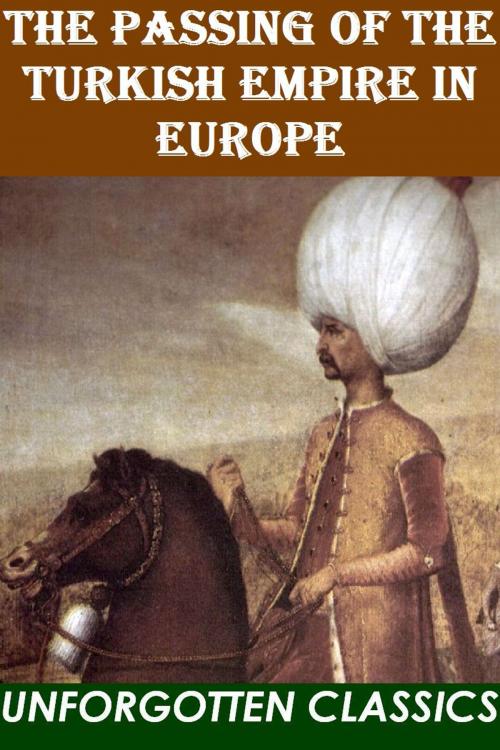| Author: | Bernard Granville Baker | ISBN: | 1230000254870 |
| Publisher: | Liongate Press | Publication: | July 24, 2014 |
| Imprint: | Language: | English |
| Author: | Bernard Granville Baker |
| ISBN: | 1230000254870 |
| Publisher: | Liongate Press |
| Publication: | July 24, 2014 |
| Imprint: | |
| Language: | English |
INTRODUCTION
TOWARDS the end of a dismal summer, when everybody who is anybody in the United Kingdom was departing for their annual holidays, dark clouds began to gather on the political horizon overshadowing that European storm-centre, the Balkan Peninsula. Angry clouds had gathered over the seething races of those lands so frequently that no one heeded when the cry “Wolf!” went up again. “Balkan troubles again,” said those who thought they knew, and they turned with renewed interest to places for the holidays. But the clouds gathered apace, and ere Europe was fully alive to the situation, protests, ultimata, and the usual amenities had been exchanged; the world found itself confronted by a war between the Ottoman Empire and its former subjects, now clearly defined nationalities, united to one purpose, and that the end of Turkish rule in Europe.
While the Great Powers slowly set in motion the cumbrous machinery of diplomacy the storm-clouds discharged their lightnings, setting ablaze all the country from the Danube to the Ægean Sea, from the Adriatic to the Black Sea. Over the borders of Turkey in Europe came hosts of armed men, ably led, well trained, and purposeful. They came down the Valley of the Maritza, the Struma, down from the Black Mountains, and out of Greece in the south, nations in arms, and determined to end oppression in Turkey’s European possessions. With desperate valour they beat down fierce resistance until but a small shred was left of the Empire carved by the sword of Othman out of South-Eastern Europe.
History was in the making while diplomacy still talked about the status quo, and to my mind present events, if not an actual repetition of former historic happenings, bear at least some resemblance to them. Again an enemy’s angry gaze is directed towards Constantinople, again, as the early days of the ninth century into modern times, the Ruler in the seat of Constantine prepares to meet invasion. And beneath the surface of the troubled waters is there is the feeling of a heavy ground-swell. The Goths came down the Valley of the Maritza and met the Roman legions at Adrianople; the latter were defeated, Emperor Valens left among the slain. Yet those Goths were only the fringe of that great movement which broke the power of Rome. In those remote days of the “Völkerwanderung” Central Europe seethed with strong young nations bent on expansion forced by their growing numbers. Slav pressed on Teuton, and both races overflowed the boundaries set them by the Cæsars.
INTRODUCTION
TOWARDS the end of a dismal summer, when everybody who is anybody in the United Kingdom was departing for their annual holidays, dark clouds began to gather on the political horizon overshadowing that European storm-centre, the Balkan Peninsula. Angry clouds had gathered over the seething races of those lands so frequently that no one heeded when the cry “Wolf!” went up again. “Balkan troubles again,” said those who thought they knew, and they turned with renewed interest to places for the holidays. But the clouds gathered apace, and ere Europe was fully alive to the situation, protests, ultimata, and the usual amenities had been exchanged; the world found itself confronted by a war between the Ottoman Empire and its former subjects, now clearly defined nationalities, united to one purpose, and that the end of Turkish rule in Europe.
While the Great Powers slowly set in motion the cumbrous machinery of diplomacy the storm-clouds discharged their lightnings, setting ablaze all the country from the Danube to the Ægean Sea, from the Adriatic to the Black Sea. Over the borders of Turkey in Europe came hosts of armed men, ably led, well trained, and purposeful. They came down the Valley of the Maritza, the Struma, down from the Black Mountains, and out of Greece in the south, nations in arms, and determined to end oppression in Turkey’s European possessions. With desperate valour they beat down fierce resistance until but a small shred was left of the Empire carved by the sword of Othman out of South-Eastern Europe.
History was in the making while diplomacy still talked about the status quo, and to my mind present events, if not an actual repetition of former historic happenings, bear at least some resemblance to them. Again an enemy’s angry gaze is directed towards Constantinople, again, as the early days of the ninth century into modern times, the Ruler in the seat of Constantine prepares to meet invasion. And beneath the surface of the troubled waters is there is the feeling of a heavy ground-swell. The Goths came down the Valley of the Maritza and met the Roman legions at Adrianople; the latter were defeated, Emperor Valens left among the slain. Yet those Goths were only the fringe of that great movement which broke the power of Rome. In those remote days of the “Völkerwanderung” Central Europe seethed with strong young nations bent on expansion forced by their growing numbers. Slav pressed on Teuton, and both races overflowed the boundaries set them by the Cæsars.















